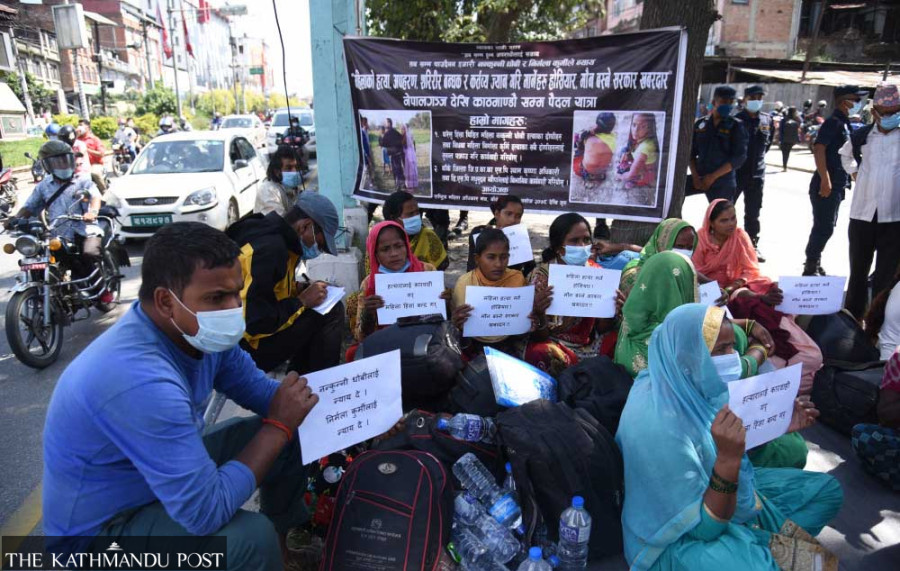Editorial
Let people protest
Trying to maintain public order by banning peaceful demonstrations is a fool’s errand.
On November 20, citing possible clashes between two competing groups of protestors, the District Administration Office in Kathmandu imposed a month-long prohibitory order, barring protests in the Maitighar area, plus the vicinity of the Prime Minister’s Office and the Office of the President. The DAO Lalitpur went a step farther, as it declared all forms of protests in the area around the UN House and the Ministers’ Quarters in Pulchowk illegal for six-whole-months. When the deadline of prohibitory order in Kathmandu was ending on December 21, the DAO inexplicably extended the ban by two months. Kathmandu DAO, while declaring the protest-ban, designated Santivatika in Ratnapark as an alternative protest site. But then the authorities started intervening in peaceful protests even there. Whatever gloss the government puts on it, banning protests at a place that has come to capture the spirit of peaceful resistance in the country cannot be justified. If there was credible information on impending violence at Maitighar, as seems to have been the case back in November, perhaps protests there could have been banned for a day or two. Yet even in that case, a ban on peaceful protests should have been the last resort. This, in turn, suggests an ulterior motive.
Peaceful protests are the bedrock of democracy. They allow people who are aggrieved by the state for various reasons to air their grievances. Shutting down this avenue will make more violent expressions of discontent inevitable. Just like its immediate predecessors, the Pushpa Kamal Dahal government also appears to be missing the public touch. In his 13 months in office, Dahal, by his own admission, could not deliver much. Despite repeatedly promising not to do so, he continues to spend much of his time cutting ribbons. His government cannot give business to the national parliament. Corruption is deepening its roots in state machinery. Yet when the people want to protest against these irregularities, the state appears intent on stifling their voice. The DAO’s argument that Maitighar is a sensitive place is also dubious, as hundreds upon hundreds of protests have taken place there over the years, with only rare cases of violence. Moreover, if public protests are to take place away from the eyes of the intended targets, they become meaningless.
But perhaps that is the intent. The representatives of the government, for various reasons, cannot solve the problems of the public, and so they also don’t want to be reminded of the inconvenient truth. If the protestors are uprooted to a less visible place, and away from the regular commute routes of the VVIPs, they can be ignored. This is a typical bourgeois mindset, as the communists would put it. In Dahal’s case, a radical revolutionary who was once at home fighting in the darkest jungle for people’s rights has, it seems, himself turned into an urban bourgeois he once so loathed. But Dahal and co. are fooling themselves if they think blocking out protestors makes them safe. That bubble of safety will one day burst.




 9.7°C Kathmandu
9.7°C Kathmandu














